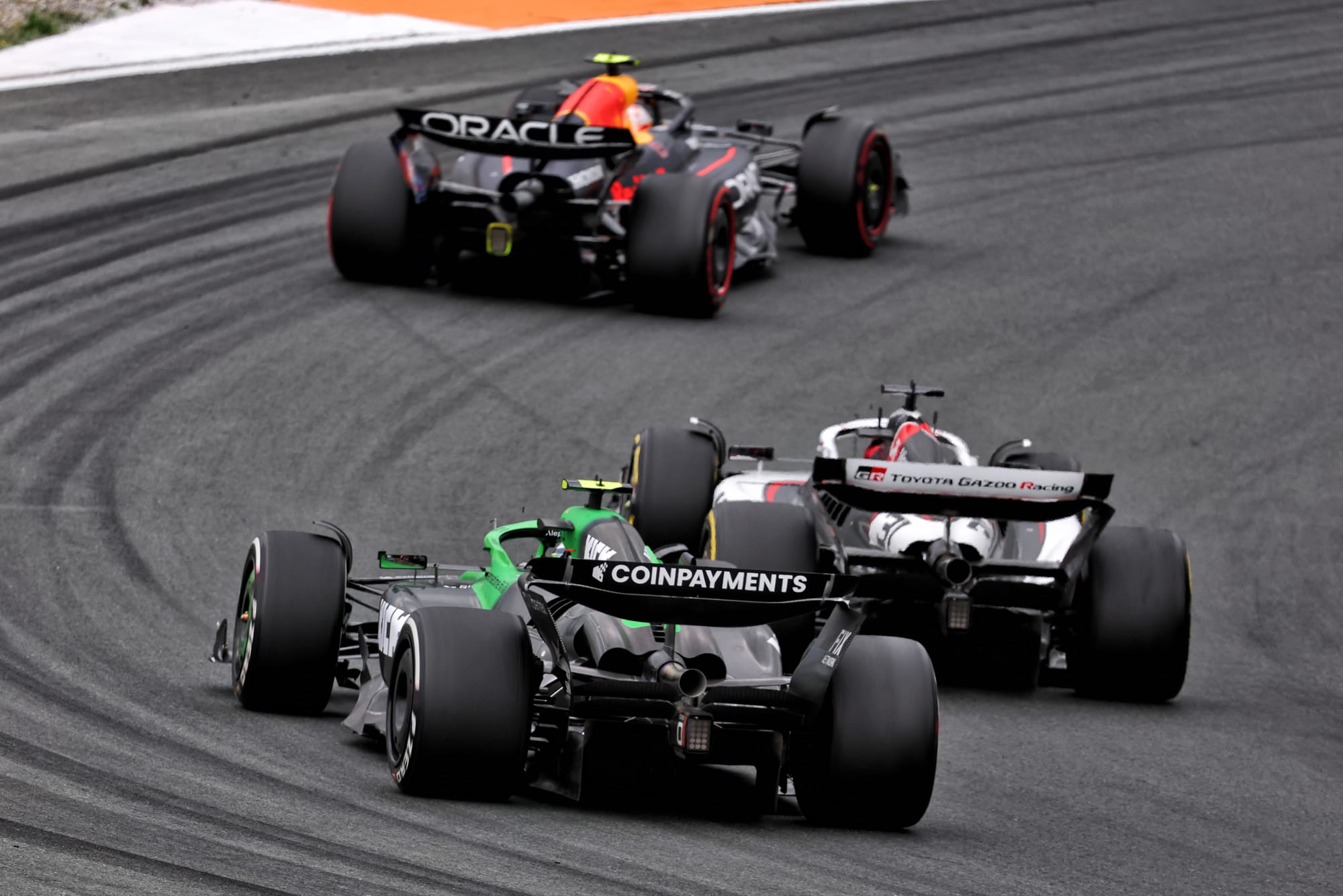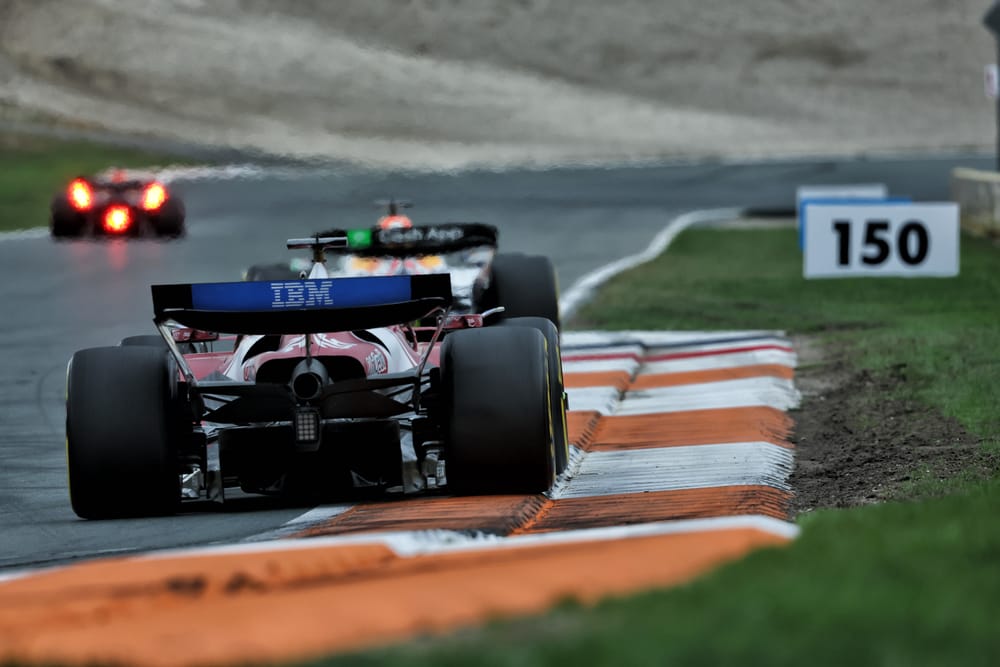Formula 1 is accelerating moves towards a switch back to V8s with engine manufacturers called to a summit with the FIA after the Italian Grand Prix to discuss the plans.
Even while F1's next generation turbo hybrid power units for 2026 have not yet run in anger, there is a growing acceptance among grand prix racing's chiefs that a switch to fully sustainable fuels opens new opportunities for the longer term.
Amid concerns about the complicated technology and high costs of the new 2026 engine, momentum has been building for F1 to make a switch for the subsequent rules cycle.
While a plan earlier this year to consider V10 engines did not gather support among the current manufacturers, discussions have taken place over recent weeks about an alternative power unit plan to eventually replace the turbo hybrids.
The Race has learned that the leading idea now is for a 2.4-litre V8 internal combustion engine that will be run on fully sustainable fuel.
This will be bolstered by a simplified hybrid Kinetic Energy Recovery System (KERS) – which will mean the electrical contribution to the overall power output is reduced from the rough 50% in 2026 to around 10%.
The hope is that the less complicated engines, and the removal of heavy battery packs, will help trigger both a dramatic reduction in costs – potentially as much as 65% - but also help reduce weight.
Early figures have suggested that the proposed new era power units could be as much as 80kg lighter than what is coming next year.
FIA president Mohammed Ben Sulayem has made no secret of the fact that he wants F1 to embark on a new direction as he feels the turbo hybrids have hit the end of the road.
Speaking to The Race at the British GP in July, he said: "Now they can see, the teams and the PUMs [power unit manufacturers], that we cannot go on with this [current] engine.
"It is such a complicated engine with the MGU-H. It did its time, but did it reach to the expectation? In another three years, I hope it's an old engine, as it will be 15 years [since it was introduced in its first form]."
The timing issue

While it is understood that the new V8 engine concept has growing support among teams and manufacturers as a long-term option, where there does appear to be less consensus is the timing of the switch.
The current plan, if nothing changes, is for the new turbo hybrids to run from 2026 until the end of 2030.
Ben Sulayem has however made no secret of the fact that he would like a change to happen earlier than this, so does not want to wait until 2031 for something new to be in place.
The Race understands that one of the main points of discussion that needs locking down is where support lies among teams and manufacturers in terms of timing.
While one idea is to make the change as early as 2029, sources suggest that a lot of manufacturers feel this is too early – so instead they would prefer to wait until 2030.
This is further backed up by a reality that a move to V8s would require all-new chassis regulations as well, so there is a reluctance to force another total revamp of rules so soon after the 2026 switch.
To help better gauge the feeling in the paddock, the FIA has called a meeting for September 11 with manufacturer and team representatives to discuss the issues at play and see what the next steps should be.
The idea of a future with V8s run on fully sustainable fuel does have support at a senior level, with F1 CEO Stefano Domenicali having long backed it.
Speaking to The Race before the summer break, Domenicali felt the combination of V8s, with sustainable fuel and some hybrid elements, would be perfect.
"Sustainable fuel, [and a] V8, I think is great. And hybridisation is, I do believe, the next step of the future," he said.
"But I don't want to take away the focus of next year's generation of regulation or power unit, because that will be wrong.
"So let's stay focused on what has to be developed in the next couple of years. And then I think that that's the future. I agree."



